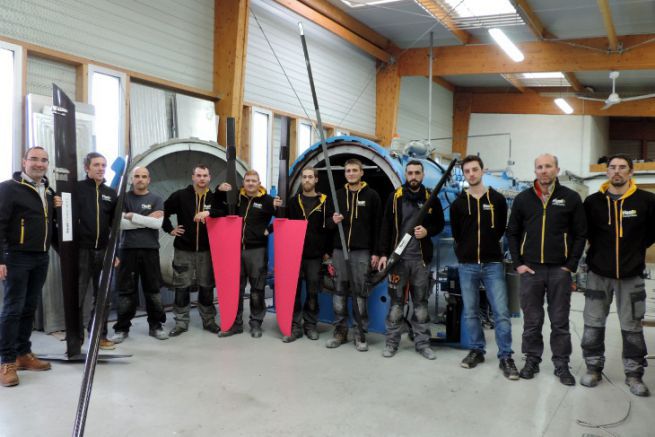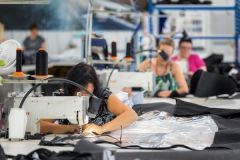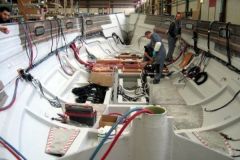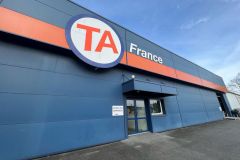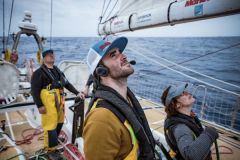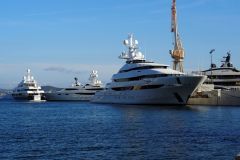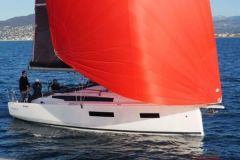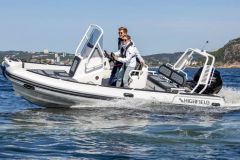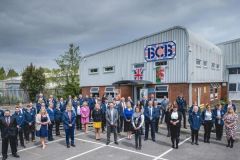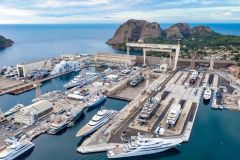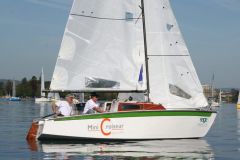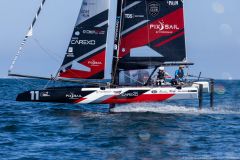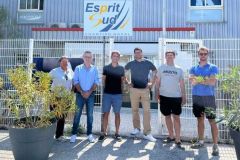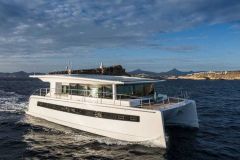You have just taken over Heol Composites, with your partner Jean-Baptiste Mouton. What were your paths to arrive at this choice?
Jean-Paul Dufau : We covered Heol Composites together with Jean-Baptiste Mouton a month ago, on October 24, 2017. We have two very different routes. Jean-Baptiste is the man of art. He is a composite materials engineer and has worked in aviation, industry, wind power, and of course in boating. He has 7 years of experience at Multiplast where he was project manager on Gitana's multihull. For my part, I was financial manager and manager in large groups, then I directed several SMI in Brittany. In a different style, I have already tasted top-level sport by running a football club in League 1, and Heol Composites' place in ocean racing speaks to me. My attraction for composites comes more from my childhood memories, where it rhymed with Airbus and flying planes. Laurent Tournier liked our tandem to ensure the development of the company he created 15 years ago, when he wanted to pursue new personal projects.
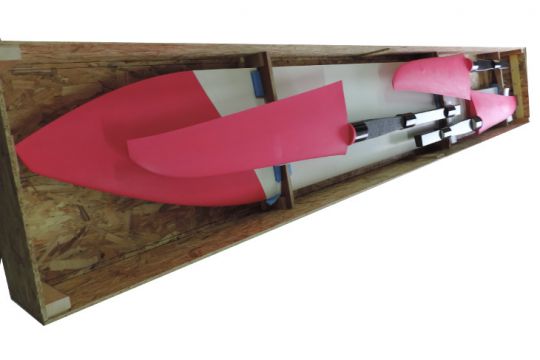
Appendices built by Heol Composites
Can you give us a portrait of Heol Composites' activity today?
Jean-Paul Dufau : Heol Composites currently employs 10 people in Treffléan for an annual turnover of just over 2 M €. We have several patents on manufacturing methods which make us specialists in hollow composite parts, very present in offshore racing, such as foils on the Vendée Globe, Extreme Sailing or the America's Cup. We also still have our range of spars and the new hollow batten that we presented at METS.
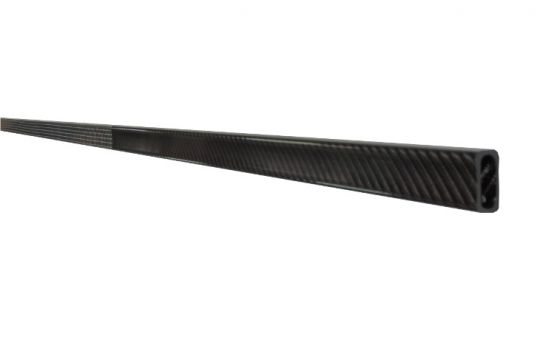
Hollow slat Heol Composites
What are your ambitions for Heol Composites in the future?
Jean-Paul Dufau : Our DNA remains ocean racing. Boating represents 70% of our activity. This is what makes our employees happy in the workshop and we will continue to do it and do it well. We will also work to further transpose our know-how into application niches in the industry. We are a second tier supplier for Airbus. Carbon is already light and with our hollow technologies, we are even lighter. There are a lot of things that can be transposed into the industry.

